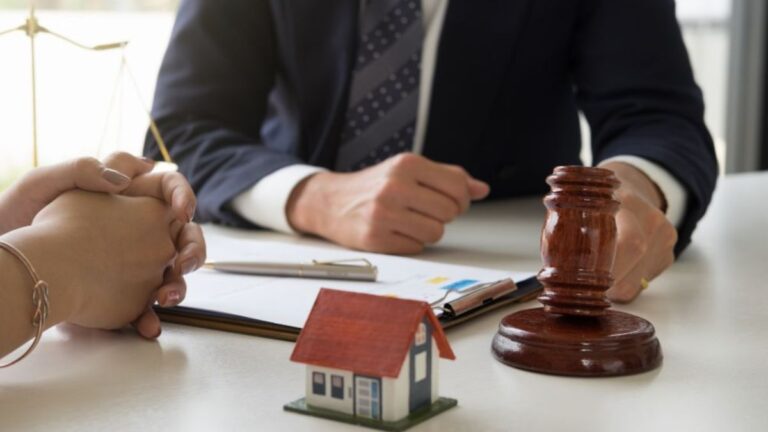The numbers are shocking – more than 223,000 people visit emergency rooms, get hospitalized, or die from traumatic brain injuries each year in the United States.
Many of these injuries happen on rental properties, which makes us think over an important question: “is the landlord responsible for tenant injury”?
A court can hold you liable under the legal concept of negligence if your actions as a landlord directly cause a tenant’s injury.
Every state requires landlords to provide rentals that meet simple health and safety standards.
Georgia landlords are required to keep their tenants safe. GA Code § 44-7-14 makes landlords responsible for damages from defective construction or failure to maintain premises in good repair.
Property owners need to understand their legal obligations beyond just avoiding lawsuits.
We must create safe living environments.
Slip and fall accidents are among the most common types of tenant injuries.
These typically occur due to wet floors, broken stairs, inadequate lighting, or uneven surfaces.
The good news is that we can reduce these risks by a lot with proper knowledge and preventive measures.
This piece will show you how to prevent injuries on your property.
You’ll learn what to do if a tenant is injured and how to protect yourself legally while fulfilling your property owner responsibilities.
Preventing Injuries on Your Property
Property owners must create a safe environment that goes beyond avoiding legal issues.
We must prioritize the well-being of our tenants.
Research indicates that unintentional falls result in approximately 654,000 people visiting emergency rooms each year.
Many of these accidents could be prevented with proper maintenance.
The law requires property managers to check their premises regularly and fix any physical hazards right away.
A detailed record of all repairs provides strong legal protection if something goes wrong.
You can prevent problems by taking these important steps:
- Put in deadbolts, good lighting, and security systems
- Fix trip hazards like broken stairs, uneven floors, and icy walkways quickly
- Keep smoke detectors and carbon monoxide alarms working properly
- Make sure common areas stay clean, bright, and clear of obstacles
A written checklist helps you get a full picture of the property before new tenants move in.
Tenants should know exactly how to report safety concerns through clear channels of communication.
Regular checks help you spot potential risks before anyone gets hurt.
Property owners must follow all building, housing, health, and safety rules that protect tenants.
Your steadfast dedication to tenant safety shows through routine property inspections.
These checks create a paper trail that could become your best defense against negligence claims.
What to Do After a Tenant Injury Occurs
If a tenant gets injured on your property, your quick response can really impact both legal and personal outcomes.
Your first step should be to show genuine care and empathy instead of getting defensive.
Serious injuries require an immediate call to emergency services so your tenant gets proper medical care.
Medical needs come first, then you need to really document what happened.
Take clear photos of the accident scene before anything changes.
Write down the exact time, date, location, and specific details about the injury. Try to get statements from anyone who saw the hazard or incident.
Your next step is to call your landlord insurance provider about the injury.
Give them your complete documentation and check what your policy covers for tenant injuries. Make sure you keep detailed records of:
- All talks with your tenant about what happened
- Medical reports and bills from the injury
- Property inspection records before and after
- Repair history where the injury occurred
- Witness statements and photos as evidence
Note that keeping evidence shows your steadfast dedication to tenant safety, beyond just protecting yourself from liability.
Plus, detailed maintenance records prove you take potential hazards seriously.
All the same, a tenant might seek compensation for medical costs and lost wages if they can prove negligence.
Your best defense against potential claims lies in having proper documentation ready.
Protecting Yourself from Legal Claims
A detailed liability insurance policy that covers tenant injuries marks the beginning of legal protection.
Standard policies might seem adequate, but landlords need specialized coverage to stay protected.
Documentation will be your best defense when facing negligence claims.
Your records should include:
- Property inspections and maintenance schedules
- Repair requests and completion dates
- Written communications with tenants
- Safety compliance certifications
Courts will get into your “duty of care” during legal proceedings.
They’ll look at your control over hazardous areas, accident foreseeability, and the reasonable preventive measures you could have taken.
Your defense strength depends on how well you can show regular property maintenance and quick hazard fixes.
Some states use “comparative fault” rules that reduce your liability when tenants contribute to their injuries.
Written lease agreements are a vital protection tool that clearly spell out tenant responsibilities.
The agreement should include clauses about tenant maintenance duties and requirements to report hazards quickly.
Building code or safety law violations lead to automatic negligence findings (“negligence per se“) in most cases.
Regular compliance with safety regulations protects you legally and prevents injuries effectively.
When Legal Guidance Becomes Necessary
Even careful property owners can face unexpected accidents.
When a serious injury happens – especially one involving potential negligence or disputed responsibility — it helps to have legal clarity.
Many landlords and tenants feel unsure about their rights after an incident.
They might not know whether the situation warrants legal action or how to find qualified help.
For anyone facing those questions, ConsumerShield connects individuals with experienced attorneys who can provide clear guidance, explain available options, and help them understand the next steps toward resolution.
By consulting trusted professionals, property owners and tenants alike can navigate the aftermath of an accident with confidence — ensuring fair treatment under the law.
Conclusion
Property owners need to understand their legal duties to keep tenants safe.
Tenant injuries can create legal and ethical issues that we need to handle before they happen.
Regular maintenance checks, quick fixes for hazards, and good record-keeping are our best protection against possible claims.
Your response after an injury can affect both legal outcomes and your relationship with tenants.
Getting medical help fast, documenting what happened, and notifying insurance right away shows you care about tenant safety while protecting your interests.
On top of that, keeping detailed records of property maintenance and tenant communications helps if legal questions come up.
Good risk management needs proper liability insurance, clear lease agreements, and following all safety rules.
We can’t remove every risk, but these steps lower the chances of injuries and our liability.
A landlord’s responsibility goes beyond what the law requires.
We want to give our tenants safe, comfortable homes and protect our investments at the same time.
Time and money spent on safety measures make good business sense and show responsible property management.
When we pay attention to these principles, we create safer rental properties and avoid unnecessary legal problems.



